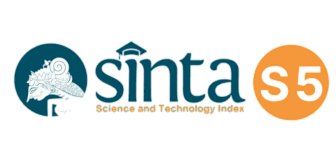Perempuan dalam Politik: Rekrutmen Anggota Legislatif Perempuan Partai Demokrasi Indonesia Perjuangan (PDIP) Jawa Timur di Pileg 2019
Downloads
This study discusses Women in Politics: Recruitment of Female Legislative Members of the East Java Indonesian Democratic Party of Struggle (PDIP) in the 2019 Legislative Election. Through political parties, women can integrate themselves into the political system. One of the functions of political parties is as a means of political recruitment, in the study of political science this recruitment is an activity of choosing and selecting and then appointing qualified members to occupy political positions according to their abilities. This research is the result of qualitative research which aims to look at the recruitment process carried out by PDIP East Java. The researcher used the theory of the stages of recruitment from Pippa Norris and the data findings found that the recruitment process was carried out by the PDI Perjuangan party openly. Selection of legislative candidates starts from party cadres, in parties there is gender equality in determining legislative candidates. Political recruitment in selecting candidates was found, parties still prioritize potential candidates who have power for the benefit of the party in increasing votes. The selection process is carried out by the party structure. Decision making in selection shows a patronage relationship from the central leadership (DPP) and regional leaders (DPD) so that it can influence the process of recruiting legislative candidates.
Copyright (c) 2023 Dyan Dwi Haquri, Ali Sahab

This work is licensed under a Creative Commons Attribution-NonCommercial-ShareAlike 4.0 International License.
- Copyright of this journal is possession of Editorial Board and Journal Manager, by the knowledge of the author, while the moral right of the publication belongs to the author.
- The formal legal aspect of journal publication accessibility refers to Creative Commons Atribusi-Non Commercial-Share Alike (CC BY-NC-SA), implies that publication can be used for non-commercial purposes in its original form (cannot be modified).
- Every publication (printed/electronic) are open access for educational purposes, research, and library. Other than the aims mentioned above, the editorial board is not responsible for copyright violation.












